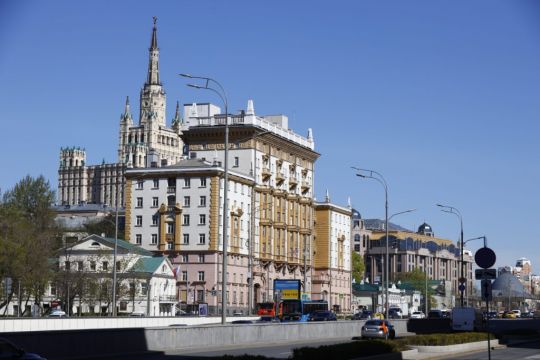Under orders from the Kremlin, the US Embassy in Moscow has stopped employing Russians, cutting its consular staff by 75% and limit many of its services.
The order went into effect on Wednesday, bringing the sharply deteriorating US-Russia relationship to a personal level.
Because of the cuts, the embassy can offer only very limited services, such as considering “life-and-death” visa applications.

That leaves Russian businessmen, exchange students and romantic partners adrift because they will not be able to obtain visas.
Even Americans will be unable to register their newborns or renew their passports.
For Anastasia Kuznetsova, a 20-year-old engaged to marry a Californian, it is a crushing blow.
She had already spent about two years seeking a fiancee’s visa. The notoriously laborious process for Russians to get US visas had already been slowed by Covid-19.
“I felt destroyed, much more depressed than I was before,” said Ms Kuznetsova, who last saw her fiance in January on a trip to Mexico.
“We have no idea when it’s going to continue working and if we will be able to see each other even during these years.”

The embassy has made no statements on whether it is taking measures to beef up the consular staff with new employees from the United States.
An order signed last month by Russian president Vladimir Putin called for creating a list of “unfriendly” countries whose missions could be banned from hiring Russians or third-country nationals.
The list includes the UK, Ukraine, Poland and several other European countries, but the America is the first nation for which the ban is being enforced.
The move followed US sanctions imposed over Russian interference in the 2020 US presidential election and involvement in the SolarWind hack of federal agencies.
Each country expelled 10 of the other’s diplomats.
Foreign minister Sergey Lavrov said the ban on local employees is in line with convention.
“We rarely employ any local personnel in the country where our diplomatic mission is,” he said last month.
“And thus we have the full right to transfer this practice onto the regulations which manage the work of the US Embassy and their general consulate in the Russian Federation,” he said last month.







